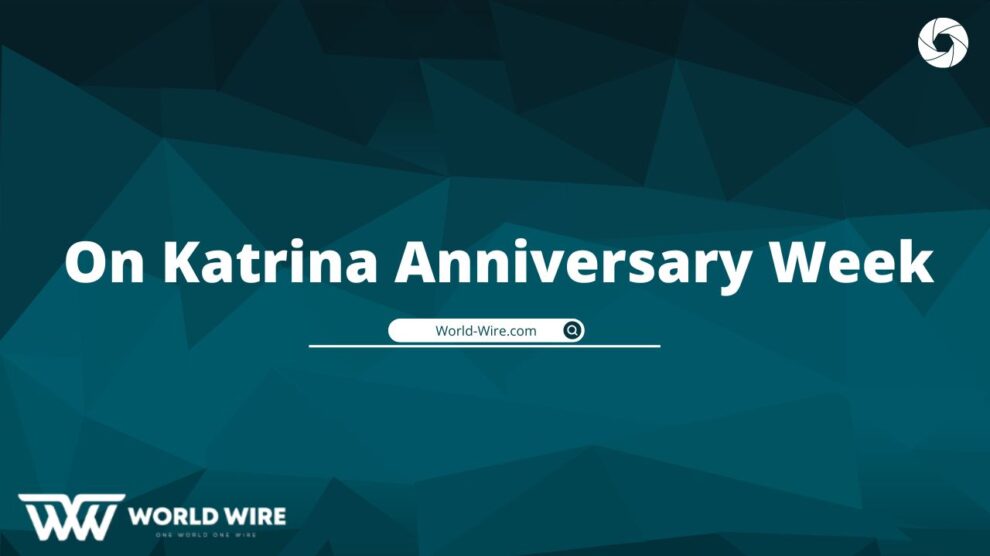The U.S. Army Corps of Engineers today was urged by a coalition of 17 advocacy groups to honor President Obama’s priority in his budget and campaign by restoring nature’s barriers — the wetlands, marshes, and barrier islands that are capable of withstanding the first blows and protecting Gulf Coast residents.
MRGO Must Go Coalition members highlighted the slow progress in restoring wetlands along the Mississippi River Gulf Outlet (MRGO) for the protection of Lower 9th Ward and St. Bernard Parish during a media tour and news conference. Both coastal communities were severely damaged by Katrina.
According to Pam Dashiell, co-director of the Lower 9th Ward Center for Sustainable Engagement and Development, the more vulnerable coastal communities are to hurricane damage, the more it costs the federal government and taxpayers. “Katrina destroyed both the Gulf Coast and the U.S. economy, causing nearly $90 billion in property damage.”
In addition to vital energy production infrastructure, Louisiana has North America’s busiest port and a vast fishing industry, both of which are thriving. Katrina severely damaged infrastructure and refineries, resulting in a spike in gasoline prices. If these industries are severely disrupted by storm damage, it will be extremely difficult for the economy to recover.
As the nation’s economy remains fragile, St. Bernard Parish president Craig Taffaro says that restoring wetlands to protect the Gulf Coast should remain at the top of the list of congressionally approved Corps projects. We should expedite coastal restoration projects to the best of our ability. We must make sure they are top priorities. The Corps must continue to protect our beaches.”
Louisiana has lost about 2,000 square miles of its wetlands as a result of Katrina’s damage, an area larger than Delaware.
“Wetlands lost during Katrina could have contributed to reducing storm surge, according to Charles Allen, director of Tulane and Xavier Universities’ Center for Bioenvironmental Research and Lower 9th Ward Center for Sustainable Engagement and Development.
“Because wetlands absorb storm energy, slow incoming waves, wind, and surge water, they are often more economical and effective at preventing damage than man-made vertical levees. Coastal forests and wetlands must be restored urgently in order to prevent similar or worse storm damage in the future..”
Although Congress authorized coastal restoration projects in the 2007 Water Resources Development Act, four years after Katrina it has not been able to fund them because the Army Corps of Engineers has not completed the projects’ design and engineering.
The Corps has now closed the MRGO. However, it won’t be able to seek funding from Congress until March 2011 to restore the wetlands and cypress forests that will protect New Orleans under the MRGO Ecosystem Restoration Plan. The May 2008 deadline set by Congress was nearly three years ago.
According to Colonel David Dysart, chief administrative officer for St. Bernard Parish, the ongoing Corps projects are significant, but it is imperative to rebuild the Mississippi River navigation system, infrastructure, and natural deltaic ecosystem. We need an unambiguous commitment from the Corps, Congress, and other responsible agencies that they will not let outdated bureaucratic procedures stand in the way of necessary action, but there are good people at the Corps and at other relevant federal agencies who are trying to get their job done and moving these projects forward. In order to succeed, we must be creative and break away from some long-standing business practices.
A member of the Lower 9th Ward’s Holy Cross Neighborhood Association, John Koeferl, commented: “There is new hope in New Orleans thanks to a new president.” According to Obama, every four miles of wetlands absorbs about a foot of a hurricane’s storm surge, so every four miles of wetlands should be restored urgently.” “The Army Corps of Engineers should follow the president’s priority.”
A coalition of 17 environmental, community, and social justice organizations is making Coastal Louisiana great again and protecting its residents.







Add Comment